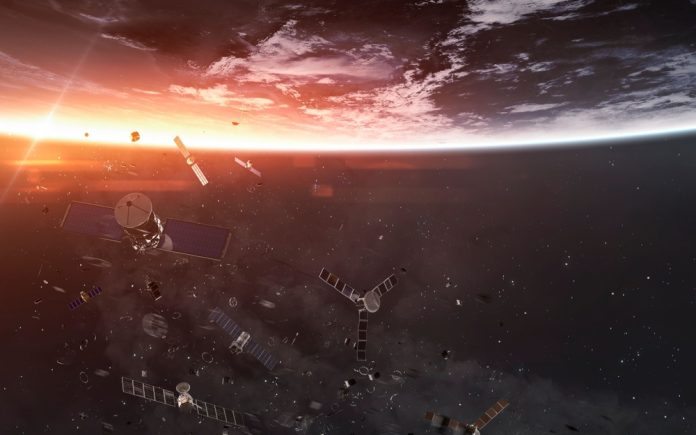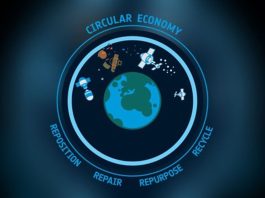Space plays an increasingly crucial role in our daily lives, and the issues of space debris and a greater need for sustainability are looming large.
Imagine a scenario where everyday services like TV, navigation, weather forecasting, and online banking are disrupted due to a satellite collision.
This is a rising concern and why the UK government is taking bold steps to mitigate the risks associated with space debris by investing in national capabilities and international cooperation.
The scale of the debris challenge
Statistical models estimate that there are approximately one million pieces of space debris measuring between 1cm and 10cm, with a staggering 130 million more pieces between 1mm and 1cm in orbit.
Of these, around 36,500 objects larger than 10cm are actively tracked, with over 35,000 already catalogued.
These include relics of the past, such as old satellites, spent rocket bodies, and fragments from previous collisions.
Active satellites that provide vital services on Earth are at risk of collision with other satellites and the huge quantity of human-made debris in orbit around our planet.
Therefore, it is crucial that the UK promotes the responsible use of space through a combination of regulation, development of sustainability standards, technological advancements, missions like debris removal, and robust surveillance and tracking services.
How the UK is tackling space debris
The UK, in accordance with the National Space Strategy, is ramping up its efforts in space sustainability.
This includes two Active Debris Removal Phase B mission studies which were awarded to Astroscale and ClearSpace in September 2022.
These will help the UK Space Agency decide which mission concept to take forward to a fully-fledged design and launch phase, culminating in 2026 with a demonstration of the nation’s capability to rendezvous, dock with, and deorbit two defunct UK satellites.
Astroscale
The UK Space Agency is funding Astroscale to continue developing its technology and capability to remove unprepared inactive satellites from Low Earth Orbit (LEO).
The Cleaning Outer Space Mission through Innovative Capture (COSMIC) will harness Astroscale’s Rendezvous and Proximity Operations (RPO) and robotic debris capture capabilities to remove 2 defunct UK satellites currently orbiting Earth by 2026.
ClearSpace
The UK Space Agency has selected ClearSpace to develop an Active Debris Removal mission capable of removing multiple dangerous objects from space.
The Clearing of the LEO Environment with Active Removal (CLEAR) mission, which will advance key technology building blocks, is a catalyst for the development of commercially viable disposal services.
Further initiatives to promote space sustainability
Alongside debris removal and in-orbit servicing and manufacturing, the UK works in areas such as space surveillance and tracking, regulation and standards, and, crucially, international cooperation.
Refuelling
The UK Space Agency is funding research into refuelling an upcoming mission to remove space junk. This could help prolong the life of satellites and prevent debris from entering the space environment.
The agency launched four feasibility studies totalling £2m, led by Astroscale, ClearSpace, Orbit Fab and Thales Alenia Space, to demonstrate the ability to refuel a UK national debris removal mission.
Atmospheric ablation studies
The UK Space Agency has launched a research study call to carry out a detailed review of existing research on atmospheric ablation which will then guide the scope and type of focused research required to aid decision-making on this important issue.
IOSM Test Facility upgrades
The UK Space Agency has announced funding for work aiming to prolong the life of satellites, part of efforts to ensure space remains sustainable for future generations.
The package includes a £2m upgrade to the Satellite Applications Catapult’s In-Orbit Servicing and Manufacturing (IOSM) facility at the Westcott Space Cluster in Aylesbury.
The facility will provide unique capabilities in the UK where companies can verify, validate and demonstrate a range of in-orbit operations, including manufacturing, servicing, inspection, repair and assembly.
Regulation and standards
Safe, secure and sustainable practices require an agreed set of rules, regulations and guidance.
Novel and innovative operations that break the traditional mould of launching into an orbit around our planet mean we need to evolve our regulatory environment.
The UK Space Agency launched a Consultation on Orbital Liabilities, Insurance, Charging and Space Sustainability.
This looks at policy initiatives on liability, insurance, and charging for licence fee applications that incentivise the adoption of more sustainable practices.









